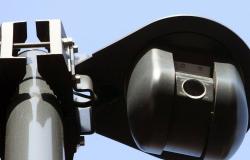Fortune has released its list of the 100 Best Companies to Work For in Europe in 2024. Who made the top 10 and why did employees rate them so highly?
ADVERTISEMENT
When it comes to professional work, Europe is known for having one of the most favorable approaches in the world.
European countries consistently rank among the best for work-life balance, were among the first to experiment with the four-day week, and offer some of the highest average salaries in the world, as well as other employee benefits.
But which companies on the continent are good to work for?
Fortune and Great Place To Work have published the “Fortune 100 Best Companies to Work For Europe” list, based on the analysis of more than 1.3 million responses to surveys of more than 2 million employees. employed throughout Europe.
The companies that top the list have employees who are both more motivated to work and more comfortable with working methods of their business.
For example, according to a Great Place To Work blog, market research found that at top-ranked companies, nearly 90% of workers reported doing extra effort to get their work done, compared to just 59% in a typical European workplace.
The study also revealed that the camaraderie was a driving factor, with workers being 108% more likely to put in extra effort if they felt a sense of cooperation with their colleagues.
Additionally, 86% of employees at these Best Workplaces expressed their intention to stay long termcompared to just 60% in other workplaces, which is particularly important for those who feel their work is meaningful and gives them a sense of purpose.
The report also found that rates ofinnovation were 66% higher in the best workplaces and were mainly due to formation continue and to development opportunities offered by companies.
Here's a look at the 10 best companies to work for in Europe, according to Fortune's latest list.
Work-life balance is also a key factor in better company rankings and one of the aspects most valued by workers.
A high percentage of workers, about 85 percent, who work at a top company said they were encouraged to maintain a work-life balance, and 92 percent said they had the possibility of taking leave when necessary.
Fairness in the workplace also played an important role and contributed to the better ranking of some companies.
Employees at these companies reported that promotions were fair (78%), that they received a fair share of company profits (70%), and that their managers did not show favoritism among their staff (81 %).
This feeling of fairness is also linked to the desire of employees toadopt artificial intelligence tools (AI) in their work.
Only one in three (34%) respondents in the entire European study said they were enthusiastic about using AI to improve their work; the report also found that people who felt their company was fair were 29% more likely to be enthusiastic about using AI tools.
What are the main industries in Europe?
While European workers are still reluctant to adopt AI, the tech sector in general is not a dominant force in Europe when it comes to employment.
This situation contrasts with that of the United States, where technology companies such as Nvidia, Microsoft and Google are among the best and were the first to benefit from the AI boom.
In Europe, however, many leading companies are in more traditional sectors such as fossil fuels, automobiles and finance, as the recent Fortune 500 list shows.
At the top of the list, Europe's largest company is German carmaker Volkswagen, followed by two oil and gas companies, Britain's Shell and France's TotalEnergies.
According to Fortune, while only 15 companies on this year's list are in the technology sector, traditional companies are also opening the door to innovation by adopting automation technologies.
For example, Volkswagen announced at the beginning of the year the integration of the AI chatbot ChatGPT into the voice assistant of some of its vehicles.
Additionally, fossil fuel company Shell has also adopted the use of AI in its operations, such as using AI-based technology in deep-water exploration and production, with the aim of improve operational efficiency, accelerate processes and increase production.






